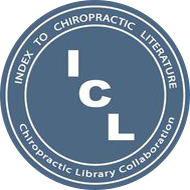| OBJECTIVE: To determine whether there are differences in results when evaluating cervical range of motion (ROM) with radiographic analysis, a bubble goniometer, and a dual inclinometer and whether particular physical parameters are related to cervical ROM. METHODS: We evaluated the cervical ROM of 115 volunteers with each of the 3 clinical methods. Tape measurements of neck girth, distance from chin to sternal notch, and distances from ears to acromion were also recorded, along with sex and age. Interrater and intrarater reliabilities were determined, and the Pearson product moment correlation test and t test were performed on all data. RESULTS: Cervical ROM as determined by radiographic analysis was greater than that obtained with either a dual inclinometer or a bubble goniometer. All tape measurements were weakly correlated with all 3 means of cervical ROM evaluation, with the exception of the measurement of ear lobes to acromion, which did not correlate with radiographic analysis. There were also differences found in cervical ROM by sex and by age, with female subjects and younger subjects having a greater ROM. CONCLUSION: Compared with a dual inclinometer and a bubble goniometer, radiographic analysis provides a more accurate evaluation of cervical ROM. Click on the above link for the PubMed record for this article; full text by subscription. |
